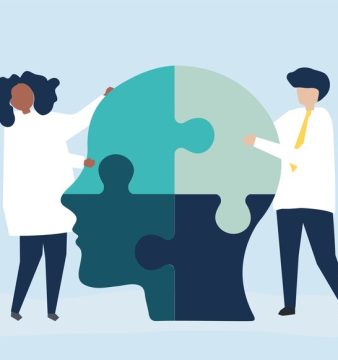Understanding Mental Health: Superwoman and Super Mom Syndromes

Mental health is a sensitive but important subject that has, in recent years, been gaining increased attention and awareness, all over the world. Yet, in many parts of the world, mental illness is still viewed as a stigma, leading many men and women to avoid treatment.
Due to societal and sometimes self-imposed pressures, women are often compelled to do much more than they can. This leads to poor mental health which manifests in different ways, from panic disorder, anxiety, stress and eating disorders, to depression, substance abuse and addiction.
In many African countries, mental illness is not accepted and is frowned upon. Many people, especially women, don’t feel comfortable talking about what could be a very serious illness. A mental illness such as depression can lead to suicidal thoughts and perhaps even suicide. But due to the social stigma attached to mental illness, many people often find themselves forced to sweep their issues under the rug or even deny its existence.
If it weren’t for societal shaming and the guilt of being responsible for dishonouring family reputation, many would get help and avoid suffering and pain, thereby saving lives.
Over the past few years, many women have shared with me their worries and concerns about their own and their children’s mental health. But due to a lack of mental health awareness and support, as well as societal pressures, they continue to live their lives without seeking treatment. As a result, throughout time, many women have become victims of the Superwoman and Super Mom Syndromes.
What is the Superwoman Syndrome?
In today’s fast-paced lifestyle, many women are often caught up in what is called the ‘Superwoman Syndrome’. Online self-improvement community website, Self-Growth, defines women with Superwoman Syndrome as:
‘These women are constantly striving to accomplish everything possible in a perfect manner. They have not learned how to put themselves as a top priority and most often, do not have the time or energy to devote to themselves. Even when having the time, they may consider themselves selfish to indulge in self-pampering or to simply provide themselves quiet time alone. Superwomen always set standards that are unnaturally high, and are beyond reach or reason. They tend to strain compulsively toward impossible goals. They measure self-worth entirely in terms of productivity and tangible accomplishments. Unfortunately, by doing so, these superwomen are making life much more stressful and losing out on its many joys.’
In our culture, as a young girl, you are expected to help around the house with chores, cooking, cleaning, etc. And as you get older and join the labour workforce, your chores don’t disappear, they might even multiply. Your duties are extensive and extend to home, work, church/mosque, and with your family and extended family.
I might be living in the US, but that doesn’t make my life any easier. As a woman, my roles include mother, teacher, cleaner, chef, driver, social events organiser, therapist; and I am required to excel at the office as well.
Are you a Super Mom?
A Super Mom is simply a Superwoman who is a mom. In a Huffington Post article called ‘Do You Have Super Mom Syndrome’, the syndrome is defined as:
‘The Super Mom Syndrome is the delusional belief held by a mother that she is capable of doing all things for all the people in her life at all times while perfectly managing herself.’
A woman suffering from either of these syndromes is at great risk for poor mental health, especially if self-care is not prioritised.
I am one of eight kids and my siblings live in the same city as me. This is a blessing for me as it gives me the comfort of knowing that in any distressing situation, I have someone to talk to, somewhere to go, and have around me, people who love and care for me and have always unconditionally supported me. But even with this amazing level of support, I sometimes feel overwhelmed with the number of things I need to handle for myself, my children, husband, family and co-workers. It doesn’t help that I am an over-zealous hard-working perfectionist.
My parents taught me from a young age that whatever I do — no matter how big or small — I must do my best. And I credit that upbringing, to my success at work and the great support network I have cultivated over the years, on both personal and professional levels.
To get a broader perspective into the problem of mental health, I spoke to a few African women in my community who shared their personal experiences in anonymity.
One of them is a stay-at-home mom for over 10 years as she wanted to take care of her children, especially after one of them was diagnosed with Attention Deficit Hyperactivity Disorder (ADHD). Despite these challenges, she went back to school and finished her undergraduate degree. But all of that came at a heavy cost as she suffered from depression. She had been so busy taking care of her children and feeling ashamed of the stigma our African culture associates with mental illness that she never sought help. And even though she had family members around her, she didn’t share her predicament with them as she was embarrassed and didn’t want to burden them. When I asked her what she would tell her younger self, she replied, ‘I would invest more time in my friendships. I think feeling lonely is and continues to be my biggest problem.’
The other woman I spoke to, shared her journey from when she was a teen. When asked how old she was when she realised she had issues with mental health, she said: ‘I can’t really remember, and I think it manifested itself mostly in the last 10 years. But even as a teenager, I had a lot of issues with self-confidence.’
Due to scheduling and financial challenges, she only started seeking professional help during the last seven years. She said that depression and anxiety had impacted her overall quality of life. ‘You might come off as defensive and distant and your interpretation about what happens in your life is a bit distorted because you lack peace and clarity,’ she said.
She agrees that societal and self-imposed pressures are responsible for the very high expectations women have on themselves. The good news, however, is that women tend to deal with mental issues better. Perhaps because we tend to express our feelings and emotions much more openly, whereas for men even that can sometimes be taboo, something which is especially true for the East African community. When asked what she would tell her younger self to help manage better, she replied, ‘Love yourself more and be kind and compassionate to yourself. If you make a mistake, it’s ok. Don’t take yourself too seriously and have a sense of humour. Don’t set extremely high expectations and don’t be hard on yourself.’
A lot of times people who are compassionate towards others are less compassionate towards themselves. If these are women who live in a much more liberal country like the US, you can imagine what women in Africa are going through. The stigma is real, doctors who specialise in mental health are very hard to find. In many cases, women who are struggling with depression may be struggling financially as well; therefore, they would be unable to seek help, even if they find the courage, time and support to do so.
Mental wellness is critical to a healthy life. Let’s keep this conversation going.
 Terhas Berhane-Rwakaara is an Eritrean-Ethiopian, born and raised in Sudan. Now based in the US, she is currently a full-time management employee with two children. With high family and community values, faith and family are her priorities. She is also a huge advocate of civic duty and volunteerism, and is passionate about mentoring women. Diagnosed with ADHD as an adult, she feels the responsibility to do more to raise awareness and remove the stigma associated with mental illness in her culture.
Terhas Berhane-Rwakaara is an Eritrean-Ethiopian, born and raised in Sudan. Now based in the US, she is currently a full-time management employee with two children. With high family and community values, faith and family are her priorities. She is also a huge advocate of civic duty and volunteerism, and is passionate about mentoring women. Diagnosed with ADHD as an adult, she feels the responsibility to do more to raise awareness and remove the stigma associated with mental illness in her culture.
Stay tuned for more articles from Terhas, where she shares her personal journey dealing with ADHD, and stories of women and expert interviews on mental health.





This is just awesome! I am so happy to see this article and cant thank you enough Mai for helping me throughout the whole process! Excited for what’s to come and hope these articles help us start the conversations about mental health.
Cheers!
Terhas
Thank you for your article and bringing awareness to a much needed topic . I hope this helps people and especially women to speak up because its just when you have cancer or diabetes you don’t hide you go out and seek treatment. The same should be about mental illness the best gift you give yourself and family is to seek treatment.
Keep up the Great work
I enjoyed reading the article and relate so much with it.
And I know many women who are going through the same situation.
What a powerful piece! Thank you so much for shining some light on this, very well written.
mental wellness is critical for health life 💜
Speaking the truth! It doesn’t help to hide it when what we really need to do is get comfortable with talking about it. Thank you for writing and sharing this!
It’s a very informative article I know so many of us can relate to it. Thank you so much for sharing such a great article.
Great article! Very encouraging! Thank you so much for sharing. I am sure a lot of people will benefit from this article!